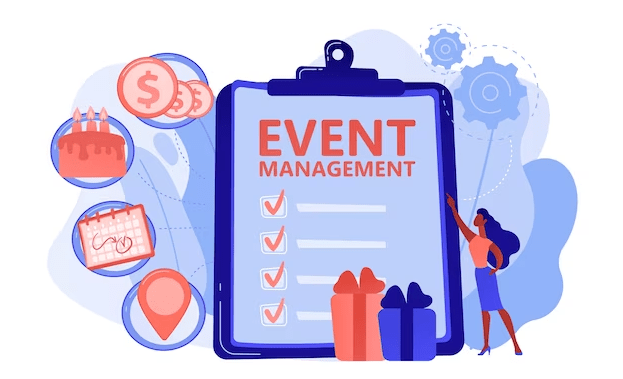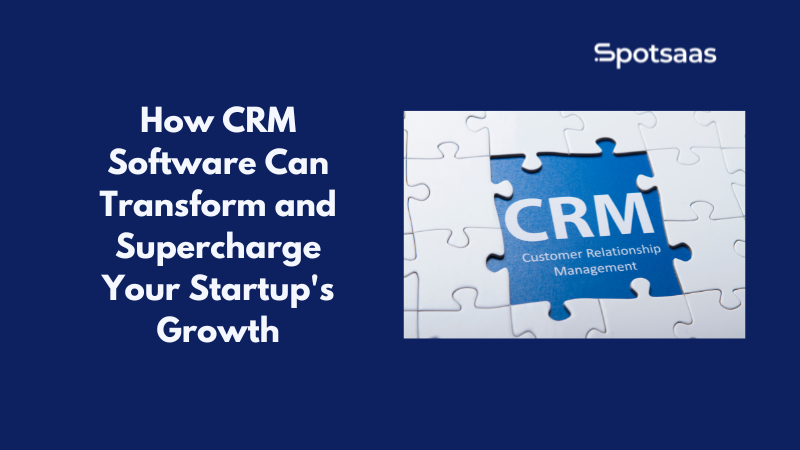Are you curious about a career in event marketing management but unsure where to start? According to the U.S. Bureau of Labor Statistics, the demand for event planners is expected to grow 11% by 2026, faster than average job growth.
This blog post will provide detailed guidance on how to become an Event Marketing Manager and different paths you can take in this dynamic industry. Stick around and discover what it takes to excel in a fulfilling career in event marketing.
Key Takeaways
- Event marketing managers are responsible for planning, organizing, and promoting events to drive brand awareness and engage target audiences.
- To become an event marketing manager, individuals can pursue a bachelor’s degree in marketing or management and gain experience through internships or entry-level positions in event planning or promotions.
- Possible career paths in event marketing include demand generation or campaign management, brand or corporate communications, and event marketing.
- Opportunities for advancement in the field of event marketing include roles such as field marketing manager, head of growth, and VP of global demand generation.
What is an Event Marketing Manager
An Event Marketing Manager is responsible for planning, organizing, and promoting events to drive brand awareness, generate leads, and engage target audiences. They possess a range of skills including project management, strategic thinking, creativity, and strong communication abilities.
These professionals play a crucial role in ensuring the success of events by developing effective marketing strategies and executing promotional activities.

Responsibilities and skills required
As an Event Marketing Manager, you must exhibit strong communication and organizational skills. From creating innovative event concepts to developing marketing strategies, your role is multi-faceted.
Coordinating with different teams for promotional activities and fostering relationships with vendors forms a crucial part of the job. You’ll need analytical abilities to monitor event performance and adapt strategies as needed.
Leadership traits are vital as you will guide diverse team members towards shared goals while ensuring the events align perfectly with company branding efforts. Additionally, problem-solving capabilities can help manage unforeseen circumstances to ensure seamless execution of every event.
Importance in event planning and promotion
Event marketing managers play a crucial role in the success of event planning and promotion. They are responsible for developing and executing marketing strategies to create awareness, generate interest, and drive attendance for events.
By leveraging their expertise in marketing and communications, event marketing managers effectively promote events through various channels such as social media, email campaigns, advertising, and public relations efforts.
Their ability to identify target audiences, develop compelling messaging, and implement strategic tactics helps increase event visibility and attract the right attendees. With their skills in data analysis and market research, they also evaluate campaign performance to optimize future event promotions.
How to Become an Event Marketing Manager
To become an Event Marketing Manager, individuals can pursue a bachelor’s degree in marketing, management, or a related field and gain experience through internships or entry-level positions in event planning or promotions.

Education and qualifications
Event Marketing Managers typically require a Bachelor’s degree in marketing, management, or a related field. This educational background provides a solid foundation for understanding marketing strategies and principles.
It equips individuals with the skills needed to develop effective event promotion plans and coordinate various aspects of event management. Additionally, obtaining certifications or completing specialized courses in event planning can further enhance career prospects in this field.
While formal education is important, practical experience gained through internships or entry-level positions is also highly valuable for aspiring Event Marketing Managers.
Gaining experience through internships and entry-level positions
Internships and entry-level positions offer valuable opportunities to gain practical experience in event marketing. These roles provide hands-on exposure to the industry, allowing individuals to learn essential skills and develop a deep understanding of event planning and promotion.
By working alongside professionals in the field, interns and entry-level employees can contribute to real-world projects, participate in marketing campaigns, assist with event logistics, and engage with clients and stakeholders.
This firsthand experience not only enhances their knowledge but also helps them build a strong network within the industry. It serves as a stepping stone for aspiring event marketing managers, enabling them to progress towards higher-level positions in their career journey.
Career Paths in Event Marketing
Some possible career paths in event marketing include demand generation or campaign management, brand or corporate communications, and event marketing.
Demand generation or campaign management
Demand generation or campaign management is another career path that event marketing managers can pursue. In this role, they focus on creating and implementing marketing campaigns to generate demand for a product or service.
They work closely with the sales and marketing teams to develop strategic plans, execute targeted campaigns, and track their effectiveness. This involves market research, identifying target audiences, developing messaging and creative materials, managing advertising channels, analyzing data and results, and continuously optimizing campaigns for maximum impact.
Event marketing managers who excel in demand generation or campaign management have a strong understanding of consumer behavior, market trends, digital marketing techniques, analytics tools, and project management skills.
Brand or corporate communications
Brand or corporate communications is another career path in event marketing. Professionals in this field are responsible for developing and maintaining a positive brand image for an organization through effective communication strategies.
They create compelling content, manage social media platforms, and coordinate public relations efforts to enhance the company’s reputation and engage with customers. With a focus on storytelling and building relationships, brand or corporate communications experts play a crucial role in shaping how an organization is perceived by its target audience.
This career path offers opportunities for growth as professionals can progress to roles such as brand manager or public relations manager within the event marketing industry.
Event marketing
Event marketing plays a vital role in the planning and promotion of events. It involves creating and implementing marketing strategies to attract attendees, generate demand, and increase brand visibility.
Event marketing managers have the responsibility of overseeing these efforts, ensuring that all promotional activities align with the event’s objectives. They utilize their skills in market research, digital marketing, social media management, and content creation to create effective campaigns.
By collaborating with cross-functional teams and leveraging their expertise in event planning and execution, they contribute to the success of events by driving attendance numbers and enhancing attendee experiences.

Advancement and Growth in the Event Marketing Field
Opportunities for career progression in event marketing are abundant, with roles such as field marketing manager, head of growth, and VP of global demand generation available to professionals who demonstrate expertise and leadership skills.
Opportunities for career progression
Event marketing offers a wide range of opportunities for career progression. As you gain experience and expertise in the field, you can advance to positions such as a Field Marketing Manager, Head of Growth, or VP of Global Demand Generation.
These roles involve leading strategic marketing campaigns, managing teams, and driving overall business growth. With a Bachelor’s degree in marketing or a related field and relevant experience as an Events Assistant or Team Leader, you can progress further to become an Experiential Event Manager, Promotions Consultant, Brand Manager, or Public Relations Manager.
Other potential career paths include becoming an Event Coordinator/Planner/Producer/Strategist/Promotions Manager/Sponsorship Manager/Branding Manager/Logistics Manager/Sales Manager or even a Marketing Coordinator or Marketing Manager within an event management company or department.

Salary ranges and job satisfaction
Event marketing managers have the potential to earn competitive salaries based on their experience, expertise, and the size of the company they work for. According to industry data, the average salary for event marketing managers ranges from $45,000 to $75,000 per year.
However, those with more experience or working in larger corporations can earn upwards of $100,000 annually. Job satisfaction is also high among event marketing managers as they get to work on exciting projects and see the direct impact of their efforts in successful events and promotional campaigns.
They enjoy the fast-paced nature of their work and the opportunity to collaborate with various teams and stakeholders.
Continuing education and professional development options
Event marketing is a dynamic field that requires professionals to stay updated with the latest trends and strategies. Continuing education and professional development options play a crucial role in advancing one’s career as an event marketing manager.
By attending workshops, seminars, and conferences focused on event planning, marketing tactics, and industry best practices, professionals can enhance their skills and knowledge. Additionally, obtaining certifications like Certified Event Planner (CEP) or Certified Meeting Professional (CMP) can demonstrate expertise in the field.
Pursuing higher education through specialized courses or earning a master’s degree in event management can also open doors to more senior positions within the industry. Continuous learning and professional development are essential for staying competitive in this fast-paced profession.
Conclusion
Becoming an event marketing manager can be a rewarding career path for those who are passionate about planning and promoting events. By gaining relevant qualifications, experience through internships or entry-level positions, and continuously developing their skills, aspiring professionals can pave the way to success in this field.
With opportunities for advancement and growth, along with competitive salaries and job satisfaction, event marketing offers a promising future for those interested in combining their love for marketing with the excitement of event planning.
Frequently Asked Questions
What does an event marketing manager do?
An event marketing manager is an event producer and strategist who handles various responsibilities including event branding, logistics, sales, operations, promotions and securing sponsorships.
What skills or qualifications do I need to become an Event Marketing Manager?
You should have a Bachelor’s degree in management or related fields and experience as an event organizer to start your career path as an Event Marketing Manager.
Can I move up in my career as an Event Marketing Manager?
Yes! Career advancement opportunities abound for dedicated professionals in this field. You may progress into roles like the Event Promotions Manager, Operations or Sponsorship Managers with career development efforts.
Are there different paths within the events marketing profession?
Definitely! The marketing career paths can lead you to becoming not only the Events Sales Manager but also specialize into areas such as Branding or Logistics Management.




